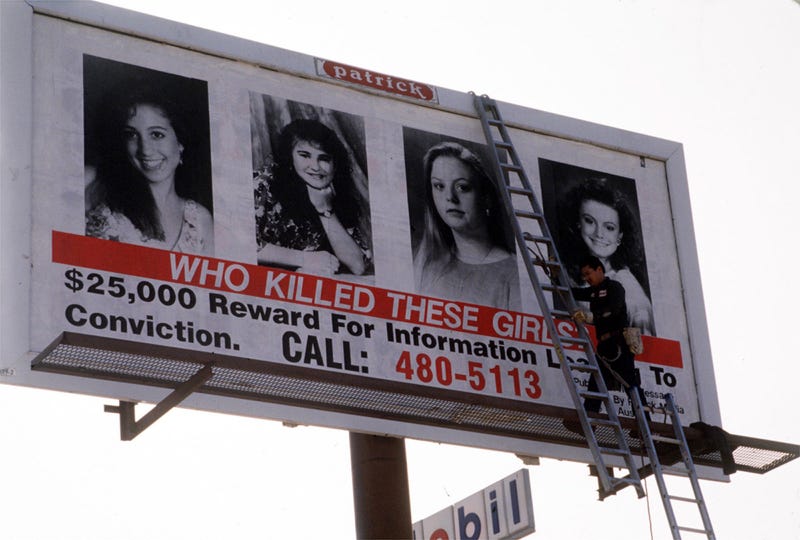
AUSTIN (Talk1370.com) -- Monday marks 30 years to the day since one of Austin's most infamous - and heinous - crimes took place. And in those three decades since, answers to the question of who is responsible for what happened that night at a north Austin yogurt shop are still few and far between.
Late on the night of Dec. 6, 1991, four teenage girls - 13-year-old Amy Ayers, 17-year-old Jennifer Harbison, her 15-year-old sister Sarah, and 17-year-old Eliza Thomas - were at an "I Can't Believe It's Yogurt" shop on Anderson Lane in north Austin. Jennifer and Eliza both worked at the store, and Sarah and Amy arrived at the store near its 11 p.m. closing time.
At some point between 11 p.m. and midnight, while the girls were closing the store and cleaning up for the night, what investigators believe was a robbery happened. The four girls were bound, gagged, shot in the head, and their bodies stacked on top of each other. The whole store was then set ablaze.

A police officer on patrol saw the two-alarm fire, and called firefighters to the scene.
The investigation into the quadruple murder dragged on for years, with more than $100,000 being offered at one point as a reward for information leading to a conviction.
In 1999, Austin Police arrested four men on charges of capital murder - three of whom had been students at McCallum High School at the time of the murders.
"On Dec. 6, 1991, we as a city lost our innocence," said then-Mayor Kirk Watson at a press conference announcing the breakthrough in the case. "Today, we regain our confidence."
Two of the men recanted their confessions, saying that Austin Police had coerced them. Both men were found guilty, but their convictions were later overturned and the charges were dropped in 2009. Cases against the other two men never went to trial.
In the years since, Austin detectives haven't given up on the case, submitting DNA evidence from the crime scene to a federal database in 2017. Despite a match being found, officials with the FBI have refused to release any information, citing federal statutes blocking the release of identities of anonymous donors.
Cold cases like the 1991 murders are getting increased attention both at the state and federal level. In October, Texas Attorney General Ken Paxton announced the formation of a new Cold Case and Missing Persons Unit. "The Cold Case and Missing Persons Unit will bring cases that have been left behind – whether that is due to limited resources or insufficient funding – and bring them back into the light," said Paxton.
Rep. Michael McCaul (R-Austin) has also been pushing for change at the federal level. He joined with Rep. Eric Swalwell (D-Calif.) in May to reintroduce the Homicide Victims’ Families Rights Act in Congress.
"Almost 30 years have passed since the unspeakable and brutal murders of four teenage girls at a local yogurt shop in Austin," McCaul said in a release announcing the bill's introduction. "To this day we do not know who is responsible. As a father of five and a former federal prosecutor, it seems unimaginable to go without an answer as to why a loved one was taken so suddenly. That is why this legislation is so important – to give these Austin families – and others like them – the tools to work with law enforcement to pursue justice on behalf of their loved one."
The bill would give relatives of homicide victims under federal law the right to have their loved one’s case file reviewed, once the case has gone cold after three years.
Anyone who may have any information on the case is urged to call police. APD's Homicide tip line can be reached at (512) 477-3588, or you can call Crime Stoppers at (512) 472-8477.
